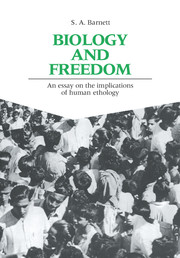Book contents
Summary
No book can ever be finished. While working on it we learn just enough to find it immature the moment we turn away from it.
K.R. PopperOn her deathbed, the poet, Gertrude Stein, turned to a friend and asked, ‘What is the answer?’ When the friend, unable to speak, made no reply, she said, ‘In that case, what is the question?’ In the late twentieth century, the first question that we face is not in doubt. Modern technology and modern politics combine to enable us to commit mass suicide, and we have to decide whether to do so. This book is written in the belief that we and our descendants will choose survival, not self-destruction, and that, in human society, there will be not only change but progress.
Like our ability to destroy ourselves, future progress depends in part on our use of scientific knowledge. The traditional image of science has two faces, both benign: science helps us to know the world; and it gives us power. But science is also a source of myths. When modern physics began, it became easy to think of the universe as a system of which all parts obey Newton's laws of motion. Yet this conclusion does not follow from Newtonian mechanics: it is an assumption. And indeed the whole notion was overthrown by Einstein's theory of relativity.
- Type
- Chapter
- Information
- Biology and FreedomAn Essay on the Implications of Human Ethology, pp. xiii - xivPublisher: Cambridge University PressPrint publication year: 1989



